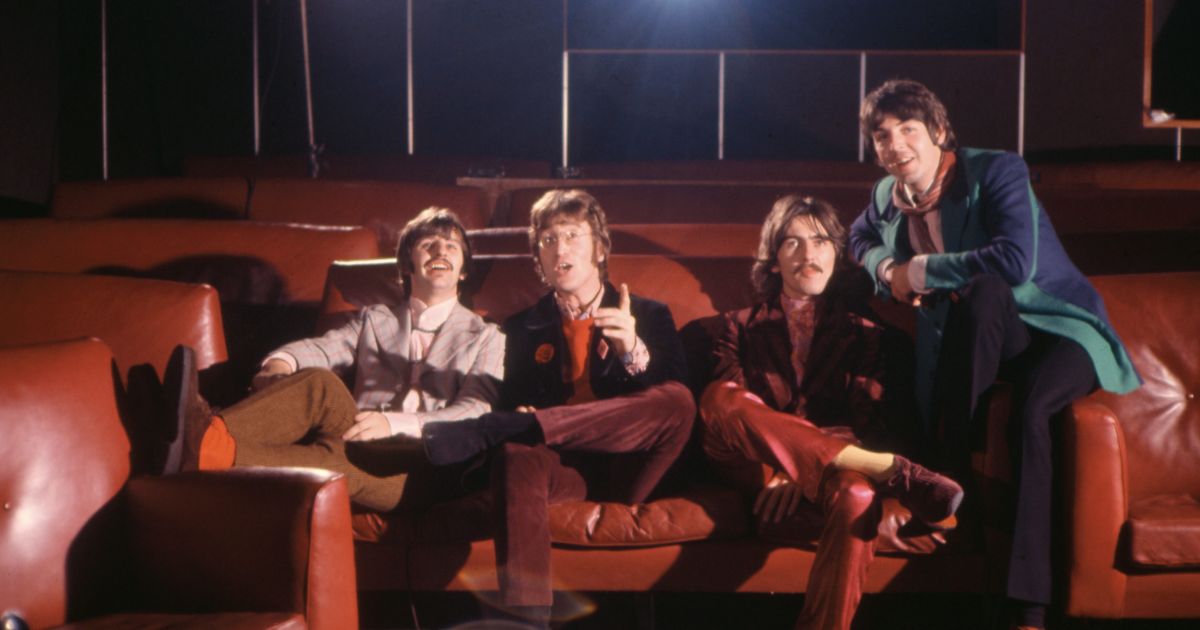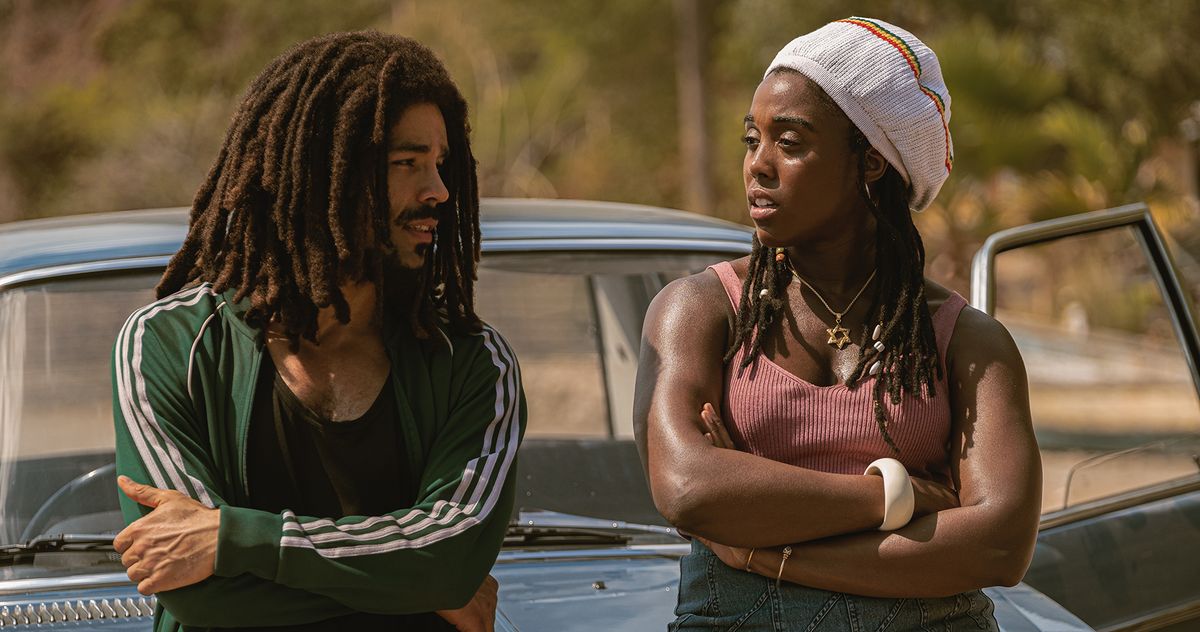
Sanaa Lathan on Making Her Directing Debut at TIFF With ‘On the Come Up’: ‘It Feels a Little Like It Was Destiny’
When you’ve been in the entertainment industry for more than 25 years, there aren’t a lot of “firsts,” but it’s been a busy week of them for Sanaa Lathan.
On Sunday night, she attended the Creative Arts Emmys, where she was nominated for her first Emmy award. And just four days later, she’s celebrating the world premiere of her feature directorial debut “On the Come Up” at the opening night of the Toronto International Film Festival.
“It was surreal and just so fun,” Lathan told Variety about attending the awards as a nominee. “The timing of it was kind of perfect because I have so much on my mind about bringing ‘On the Come Up’ out into the world that I haven’t had any time to stress over the whole award show drama.”
Lathan’s date for the big night was her little sister Colette Lathan. “We sat at the ‘Succession’ table, and we laughed and were thoroughly entertained,” Lathan says. “I didn’t win, but I felt like a winner already just for being amongst all those amazing, excellent artists. It was great; it was weirdly easier than I thought it would be.”
The budding filmmaker caught up with Variety during a brief break in her schedule as she prepares to launch “On the Come Up.” Lathan also stars in the Paramount+ film, playing Jayda “Jay” Jackson, mother to the story’s central character Bri (newcomer Jamila C. Gray, who Lathan hand-picked out of more than 200 audition tapes). Based on the best-selling 2019 YA novel by Angie Thomas, “On the Come Up” follows Bri, a talented 16-year-old high school student who dreams of making it big in the world of battle rap. But when her first song creates unintended controversy, Bri must figure out how to find her authentic voice — despite what other people think — to truly make it in the business. Below, Lathan explains how she came to direct the project and what she’s learned from the experience.
With the timing of the Emmys and TIFF happening at once — what are you feeling?
The main emotion is true joy and excitement, and it’s speckled with anxiety and [is] overwhelming at times.
I knew early on that I wanted to go for the Toronto Film Festival, and the fact that we were accepted with such warmth — the way that they’re premiering us on the opening night in this amazing 2,000 [seat], gorgeous theater, I’m just over the moon. My whole family is coming: my dad, my mom, all my cousins; I was surprised, I didn’t even invite them, everyone was like “We’re coming.” I have like four girlfriends who are like, “I’m coming,” so it’s just one of those moments where I’m thoroughly excited and kind of blown away by how everything’s unfolding.
It is a major accomplishment to step into the directing chair. What was the moment when you realized that you wanted to be a filmmaker?
My dad [Stan Lathan] is a director and my mom [Eleanor McCoy] was a dancer and an actress, so I was born into the business. I was backstage on Broadway as a toddler running around in the wings watching my mom dance, so this entertainment industry is kind of in my bones.
I always thought quietly to myself that maybe later in life, I would direct. So a couple years ago, I started just paying more attention when I’m on set. And I have a mentor who’s a DP; we would just do like quiet classes on the weekend.
And then the pandemic happened, and I had the opportunity to direct a short [a segment titled “Leap,” from the anthology film “With-In”] and I was like, “Sure, why not.” When my agents saw the short, they were like, “Can we start submitting you for things?” and I was like, “Okay?” There was no intention to be a director at this point; it was really something I did to pass the time during the pandemic. Then within like, a month, I had the opportunity to pitch for “On the Come Up” and it became such a soulful, passion project for me.
With acting it could be two or three months to six months, but with directing, it’s like two years of your life. It’s your whole life. And I love every aspect of it. I loved pre-production, production, as well as editing. I definitely know that this is now something I really want to pursue.
That’s the beauty of things. Sometimes it doesn’t come around when you’re ready; it comes around when it’s the right thing.
I feel really lucky. It feels a little like it was destiny.
What made this the right project? You were pitching as the director, but were you already in talks to star in the film?
No. There was a director who fell out, so they knew that they wanted a female director — and [when] I pitched, it was between me and three other directors. That process was completely new to me but, as a Black actress in Hollywood for damn near 30 years, you’re used to auditioning, so I was like “Okay, now what do I have to do?” and I created a beautiful 30-page deck.
I read the book, which spoke to me on so many levels. I grew up with two young artists, pursuing their career; I was in the generation of the latchkey kids, so I was kind of on my own a lot and was around a lot of addiction within the community and families, so addiction was familiar to me. Once I got the job [directing], and I started thinking about casting the character of Jay, I was like, “Actually, this might be great for me to play because I can resource a lot of my past.”
I also saw a lot of myself in Bri. Because around 14, when I was in New York, I joined a Black youth theater group and was able to put a lot of the pain and angst of being a teenager and growing up with all the issues that we grow up with into acting, like she was able to put all of her angst into her poetry. So there were a lot of parallels in that.
I just feel like her story is so important. I feel like the biggest takeaway for me was that we need to use our authentic voice and find out who we are inpidually, authentically as humans. Especially in this day and age, with social media and the internet, it seems like it’s easy to be a follower and not really find out who you are. I love that message for young girls and boys, as well as adults.
Also, just being in New York around the birth of hip-hop. That’s like my era, so I understand the authenticity of that. I know a lot of the OG rappers and I remember how it was being born. I have a true appreciation for hip-hop, so all those elements worked for me in creating my vision. It came naturally.
In addition to your father (Stan Lathan was also nominated for an Emmy this year for directing Dave Chappelle’s “The Closer”), who were some of the other directors you learned from?
Gina Prince-Bythewood [who directed Lathan in the 2000 classic “Love and Basketball”] is one of my good friends. She’ll be at the premiere and I’m going to her premiere [of “The Woman King” on Friday], which is so cool for us to both be Toronto. She was one of the first people I called about the pitch because my dad doesn’t do pitches at this stage, but he was so encouraging.
Gina walked me through the process and gave me her guy who does her decks. Then, once I came up with a pitch and developed it, I did it for her. She was so encouraging; she was such a cheerleader for me and gave me notes. It was so funny to have her giving me notes as a director instead of actor. She was like, “No, you gotta be more specific — what is it that drives you? What is going to set you apart from all these other directors?” She really helped me with the audition/ pitch process, so I’m forever grateful for that. Other than that, I had a very clear vision of how I saw the movie and I think that that’s what really got me through.
What did you learn about who you are as a filmmaker through this experience?
It’s so funny, because there’s a part of me that’s always telling people what to do in my real life. And all my friends were like, “Oh thank god, she’s gonna be directing people so she can stop telling us what is right for our lives.” Everybody keeps asking if I was nervous right before we started shooting and I was weirdly not nervous, and I felt so comfortable on set. You realize after being on set for 30 years, how much you know and how much you have this point of view. That’s part of the reason why I even started thinking about directing, because sometimes if I work with first-time directors, [I] help first-time directors along on set.
I learned that I enjoy working with actors. I have a lot of mental energy — even astrologically, it’s like all Mercury — and so for many years, I’ve dealt with anxiety. I feel like when I was working as a director, for almost two years, I didn’t have as much anxiety because I felt like I was actually using all of that mental energy that I have, whereas when I’m just acting, it’s almost like one lane. But there was part of the directing aspect that was healing to me in a weird way because I was using all of this [anxiety] and channeling it in a in a positive way as opposed to turning in on itself.
Have you started to imagine what stories you want to tell next?
Because of the amazing ride I had with “On the Come Up,” because I was truly passionate about the story and the characters, that’s my only criteria for the next directing project. It has to be something that I’m equally or more passionate about because it’s two years of your life. It’s hard, it’s not easy — from casting to soundtracks to score, it’s so all-encompassing that I’m not going to do anything for hire. It has to be passion. Genre will come after that. I have nothing in mind; I just know I want it to be special.









































![iFi's GO Bar Kensei Dongle DAC Supports K2HD Technology With Some Samurai Swagger [Updated] iFi's GO Bar Kensei Dongle DAC Supports K2HD Technology With Some Samurai Swagger [Updated]](https://i0.wp.com/cdn.ecoustics.com/db0/wblob/17BA35E873D594/33FF/45A11/QTXOLJR4xDKSNMMk2WlTgjaIlvSgcYpeU1xJzUwIoYs/ifi-go-bar-kensei.jpg?w=768&ssl=1)






















